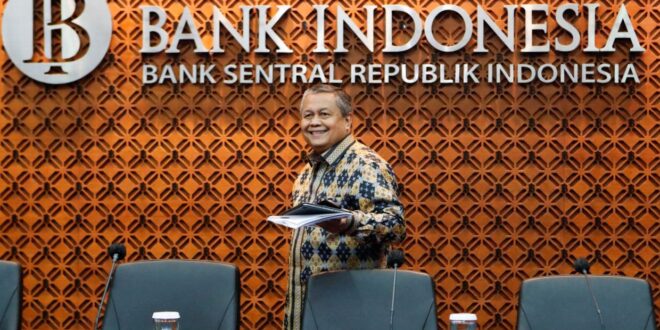JAKARTA: Indonesia’s ministers and officials with the incoming government on Monday sought to allay market worries about President-elect Prabowo Subianto’s expansionary fiscal policy, saying the 2025 budget gap would remain under the legislated ceiling.
Investors have been selling government bonds and the rupiah, sending the currency to its weakest since 2020, due to a shifting outlook for U.S. monetary policy and investor concerns about the budget impact of Prabowo’s policies.
The concerns were heightened by a report that the debt-to-GDP ratio would rise to 50% from under 40% currently under the incoming government.
Prabowo’s economic advisor Thomas Djiwandono, speaking alongside the outgoing government’s economic ministers, said the President-elect was committed to fiscal targets set by the current government, including the 2025 fiscal deficit within the range of 2.29% to 2.82% of GDP.
“The debt-to-GDP ratio that was reported several weeks ago at 50% is not possible,” Thomas said.
The cost for Prabowo’s flagship programme to give free meals to school children has been projected at 71 trillion rupiah ($4.32 billion) in next year’s budget, already included in the total spending and would not widen the budget gap forecast, current finance minister Sri Mulyani Indrawati said.
“This 71 trillion rupiah is a very good figure. We’re committed to run Prabowo’s programme gradually, within the principles of quality spending and … with the fiscal posture in mind,” Thomas said, adding Prabowo is committed to keeping the fiscal deficit under 3% of GDP.
Indonesia has laws limiting the annual budget deficit at 3% of GDP and the debt-to-GDP ratio at 60%.
“Amid uncertainties in the global economic situation, with U.S. rates potentially staying high in the next year, I think it’s important to explain that fiscal discipline will be maintained,” said Indonesia’s former finance minister Chatib Basri.
A deficit within the given range for 2025 could lower Jakarta’s debt-to-GDP ratio to between 37%-38%, Basri said.
The currency and bond prices recovered slightly on Monday after the press conference.
STRONG FUNDAMENTALS
At the conference, chief economic minister Airlangga Hartarto underlined Indonesia’s strong fundamentals, saying the country runs a smaller fiscal deficit than countries like the U.S., China and neighbouring Thailand, Malaysia and the Philippines.
Airlangga blamed the rupiah’s depreciation on a strong U.S. dollar but said the central bank has intervened to steady the currency.
Bank Indonesia (BI) Governor Perry Warjiyo told lawmakers at a separate event that the central bank has been focusing on currency intervention and selling rupiah-denominated notes to attract portfolio inflows. He saw no need for further rate hikes for now after April’s surprise increase.
Separately on Monday, the World Bank said Indonesia’s budget deficit is forecast to increase this year and may widen further as Prabowo implements his policy agenda, but revenue-side reforms could keep the gap under the legislated ceiling. – Reuters
 BeritaKini.biz Berita Viral Terkini di Malaysia
BeritaKini.biz Berita Viral Terkini di Malaysia





